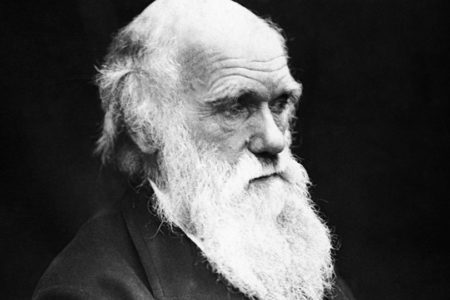God and Wisdom Conclusion
The previous article described two wisdoms, or world-life views, that oppose each other concerning issues in modern-day society. One wisdom, or view, has as its foundation and starting point the revealed knowledge of the personal, sovereign God who created the universe and a reverential trust in Him and His thoughts and ways. This is the true wisdom that is rightly related to ultimate reality. According to this wisdom, each human being exists to glorify God and serve Him and others.
The other wisdom has as its foundation and starting point a willful rejection of the revealed knowledge of the personal, sovereign God who created the universe and a reverential trust in false religion, including the religions of naturalism and secular humanism. It denies God’s existence, or it claims that, if God exists, He is irrelevant to today’s world. According to this “wisdom,” each human being exists only to glorify and serve mankind or one’s self, not God.
A prominent advocate of this view expressed its essence as follows:
The great conflict of the 21st century may be between the West and terrorism. But terrorism is a tactic, not a belief. The underlying battle will be between modern civilization and anti-modernist fanatics; between those who believe in the primacy of the individual and those who believe that human beings owe blind allegiance to a higher authority; between those who give priority to life in this world and those who believe that human life is no more than preparation for an existence beyond life; between those who believe that truth is revealed solely through scripture and religious dogma, and those who rely primarily on science, reason, and logic. Terrorism will disrupt and destroy lives. But terrorism is not the only danger we face.1
The Bible calls this wisdom “the wisdom of this world” (1 Cor. 1:20).
God’s Rejection of This World’s Wisdom
God indicated that the wisdom of the wise men of a people whose hearts are far from God will not last forever. It will perish (Isa. 29:13–14). God will destroy the wisdom of the worldly wise (1 Cor. 1:19).
Paul described God’s rejection or evaluation of this world’s wisdom and the worldly wise in 1 Corinthians 1:17–28. The worldly wise try to gain a personal knowledge and understanding of ultimate reality through wisdom that mankind has developed exclusively on the basis of the human senses, ability to reason, and methods of research. But God is ultimate reality and the source of ultimate wisdom, and the wisdom mankind has developed is incapable of bringing people to a personal knowledge of God and His wisdom (“the world through wisdom did not know God,” v. 21). Thus the world’s wisdom fails to bring its followers to a personal knowledge and understanding of ultimate reality.
Paul indicated that God in His wisdom did what the world’s wisdom could not do: provide a means for mankind to come to a personal knowledge of God and His wisdom and, therefore, a personal knowledge and understanding of ultimate reality. But God did so in a way that advocates of the wisdom of this world consider offensive and foolish (vv. 22–23). God sent His Son to the world through incarnation to die on a cross as the substitute for mankind’s sins. He thereby provided a way for people to come to a personal knowledge of God and His wisdom and, therefore, a personal knowledge and understanding of ultimate reality (vv. 17–18, 23–24, 30).
By using the means that the worldly wise called “foolish” to accomplish what the wisdom of this world could not do, He thereby exposed the foolishness of the world’s wisdom and its inability to bring mankind to a personal knowledge and understanding of ulti-mate reality (vv. 19–20). This demonstrated that the so-called “foolishness” of God is “wiser than men” (v. 25). F. W. Grosheide expressed it this way:
God entered into the world with its false presumption of wisdom and introduced something which goes counter to the wisdom of this world and condemns it, shows it up as foolishness in bringing about what the wisdom of the world was unable to accomplish. Christ was crucified and brought salvation to all who believe. This work of Christ demonstrates that the wisdom of the world is not wisdom at all, because it does not reckon with God (Jas. 2:15), neither does it accomplish anything.2
In light of this, “the wisdom of this world is foolishness with God” (1 Cor. 3:19). Thus, in order to become truly wise, a person must become a “fool” in the world’s eyes by accepting God’s revealed wisdom (1 Cor. 3:18).
Description of the Worldly Wise
God’s Word uses significant terms to describe advocates of the wisdom of this world. Those of Jeremiah’s day were described as “foolish” and “silly children” who have not known God, “have no understanding,” and “are wise to do evil, but to do good they have no knowledge” (Jer. 4:22). The word translated “foolish” refers to a person who “is impatient with discipline, overbearing in his attitude since he has all the answers, feels that his own way is without error, is licentious,” and considers the Bible’s teachings “a strange thing” and contrary to his “world view.”3 The word translated “silly” describes a person who lacks “in a moral or spiritual sense,” lives “by oneself, on one’s own resources, without dependence on God,” and is in “spiritual apostasy.”4
Because the “wise men” of Jeremiah’s day had “rejected the word of the Lᴏʀᴅ,” they were “ashamed” (publicly disgraced5), “dismayed” (demoralized “from frustration”6), and “taken” (seized with “anguish”7) by the failure of their wisdom when God’s judgment came. These consequences demonstrated that theirs was not true wisdom (Jer. 8:9). In light of such failure, advocates of this world’s wisdom were exhorted not to glory in their wisdom. Instead, they should glory in understanding and knowing God (Jer. 9:23–24).
Jeremiah 10:7 says, “Among all the wise men of the nations, and in all their kingdoms, there is none like You.”
Those who claim to be wise because they reject God’s revelation become “fools” (Rom. 1:22). Their thoughts become “futile” (“directed to worthless things”8), and the part of their being that is supposed to discern or understand truth versus error loses its ability to do so, becoming “darkened” (dominated by false wisdom that is contrary to reality) (Rom. 1:21; 1 Cor. 3:20; Eph. 4:18). As a result, they do not like to “retain God in their knowledge” (Rom. 1:28). Thus they exchange “the truth of God” (the revelation that God exists as ultimate reality; see Romans 1:18–20) “for the lie” (the assertion that the universe is ultimate reality) and worship and serve “the creature rather than the Creator” (Rom. 1:25). They do the latter through the invention and pursuit of religions that are contrary to reality. Some of these religions involve worshiping idols in human or animal form (Rom. 1:23). Others center on naturalism, pantheism, forms of the occult, mysticism, and secular humanism.
“Because of the ignorance that is in them” and “the blindness [“hardening”9] of their heart,” the worldly wise are “alienated from the life of God” (Eph. 4:18), are “past feeling” (calloused,10 insensitive to God’s revealed truth and witness of their conscience) (Eph. 4:19), and conduct their lives in accord with “the futility of their mind” (Eph. 4:17). As a result, they give “themselves over to lewdness” (“licentiousness, debauchery, sensuality”11), “to work all uncleanness” (“the practice of every kind of immorality”12) “with greediness” (“insatiableness, literally ‘a desire to have more’”13) (Eph. 4:19).
God’s Judgment of the Worldly Wise
The Bible indicates several ways God judges advocates of the wisdom of this world. Divine woe is pronounced on “those who are wise in their own eyes” (Isa. 5:21). God “turns wise men backward, and makes their knowledge foolishness” (Isa. 44:25). God declared that He would make Babylon’s wise men “drunk” (Jer. 51:57). He threatened to “destroy the wise men from Edom” (Obad. 8). Jesus stated that God has hidden from the wise some knowledge He has revealed “to babes” (Mt. 11:25). paul asserted that “God has chosen the foolish things of the world to put to shame the wise” (1 Cor. 1:27) and “catches the wise in their own craftiness” (1 Cor. 3:19; cf. Job 5:13).
Because the worldly wise reject God’s revelation and they worship and serve “the creature rather than the Creator,” God has judged them by giving “them up to uncleanness” and “vile passions” “to dishonor their bodies among themselves.” He has given them over “to a debased mind, to do those things which are not fitting.” Thus they are “filled with all unrighteousness, sexual immorality [les-bianism, homosexuality, fornication, adultery, bestiality, pornography], wickedness, covetousness, maliciousness; full of envy, murder, strife, deceit, evil-mindedness,” and “are whisperers, backbiters, haters of God, violent, proud, boasters, inventors of evil things, disobedient to parents, undiscerning, untrustworthy, unloving, unforgiving, unmerciful” (Rom. 1:24–31), “lovers of themselves, lovers of money,…blasphemers,…unthankful, unholy,…slanderers, without self-control, brutal, despisers of good, traitors, headstrong, haughty, lovers of pleasure rather than lovers of God,…always learning and never able to come to the knowledge of the truth” (2 Tim. 3:2–4, 7).
Although “knowing the righteous judgment of God” that they deserve, they not only do these things “but also approve of those who practice them” (Rom. 1:32).
ENDNOTES
- Robert B. Reich, “The Last Word,” The American Prospect Online, July 1, 2004 [www.prospect.org/web/page.ww?section=root&name=Viewprint&articleId=7858].
- F. W. Grosheide, Commentary on the First Epistle to the Corinthians, in The New International Commentary on the New Testament, ed. F. F. Bruce (Grand Rapids: Eerdmans, 1953), 46–47.
- Louis Goldberg, “ewil,” Theological Wordbook of the Old Testament, ed. R. Laird Harris, Gleason L. Archer Jr., and Bruce K. Waltke (Chicago: Moody press, 1980), 1:19.
- Louis Goldberg, “sakal,” ibid., 2: 624–625.
- John N. Oswalt, “busha,” ibid., 1:97.
- Andrew Bowling, “hatat,” ibid., 336.
- F. Hesse, “chazaq,” Theological Dictionary of the Old Testament, ed. G. Johannes Botterweck and Helmer Ringgren, trans. David E. Green (Grand Rapids: Eerdmans, 1980), 4:304.
- William F. Arndt and F. Wilbur Gingrich, “mataioo,” A Greek-English Lexicon of the New Testament and Other Early Christian Literature, 4th rev. ed. (Chicago: University of Chicago press, 1957), 496.
- “porosis,” ibid., 739.
- “apalgeo,” ibid., 79.
- “aselgeia,” ibid., 114.
- “akatharsia,” ibid., 28.
- “pleonexia,” ibid., 673.







